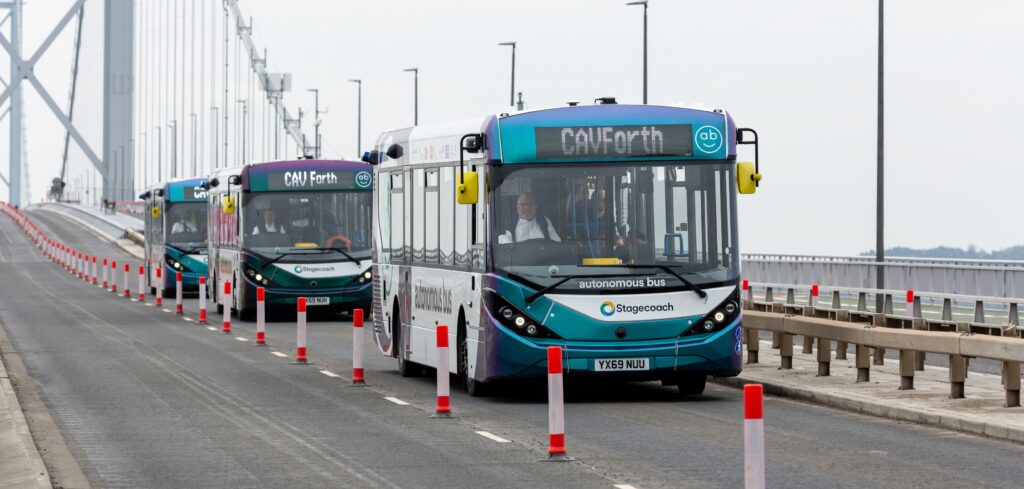Having conducted a series of in-depth autonomous bus trials, the CAVForth project will now take its biggest leap to date, with the fleet of five Alexander Dennis Enviro200AV autonomous buses starting a scheduled passenger service seven days a week, commencing on May 15, 2023.
The buses utilize Fusion Processing’s CAVstar autonomous drive system, which uses data from an array of advanced sensors, including cameras, lidar and radar combined with artificial intelligence processing to provide optimum efficiency during operations in all traffic conditions. The system also receives information directly from traffic light systems, enabling the vehicle to choose the correct speed to travel smoothly between lights. The CAVForth project buses will operate at SAE Level 4, meaning a safety driver must be on board.
Covering Stagecoach’s new AB1 route, the autonomous buses will leave from the Ferrytoll Park & Ride in Fife for Edinburgh Park interchange every 30 minutes and will have the capacity to carry up to 10,000 passengers each week. They will navigate A-roads, motorways, bus lanes and private land at up to 80km/h while carrying out complex traffic maneuvers.
The Alexander Dennis Enviro200AVs are based on the standard Enviro200 single-decker to provide a tried-and-tested platform for the continued development of autonomous driving capabilities.
“CAVForth is an exciting showcase of how our CAVstar automated drive system can safely operate in a very complex driving environment,” explained Jim Hutchinson, Fusion Processing’s CEO. “This pilot is globally significant and marks a step change in the operation of autonomous commercial vehicles on public roads.”
“CAVForth is a world-leading project, and one we are proud to be involved in,” added Professor Nick Antonopoulos, deputy vice chancellor and vice principal of research and innovation at Edinburgh Napier University. “Automation offers an opportunity to transform the ways we’ll get around in years to come, while improving safety and reducing energy consumption. As this trial gets underway, we look forward to contributing Edinburgh Napier University’s transport research expertise to understand more about the passenger experience on the AB1 service.”
“Bristol Robotics Laboratory is very proud to be involved in this groundbreaking project, which is taking a world lead on advanced automation for the public service vehicle sector,” commented Anthony Pipe, professor of robotics and autonomous systems at the Bristol Robotics Laboratory. “The short-term benefits of vehicle autonomy in providing safer and more energy-efficient travel will be illustrated by this project and, in the longer term, we believe that it will contribute significantly to transformations in the way we achieve mobility in our society.”
For more on mobility solutions, please click here.


